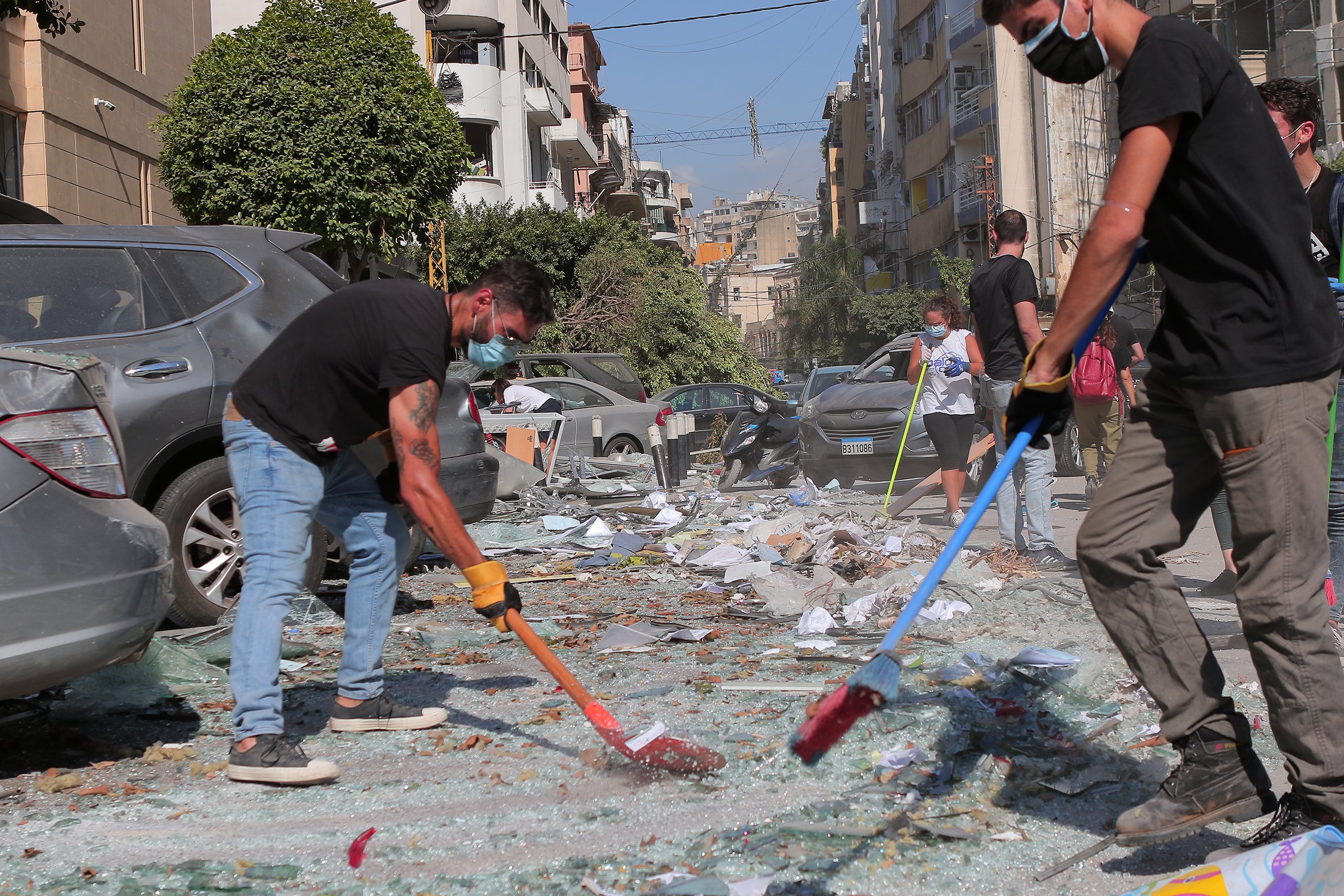Volunteers clear the streets, local groups take the lead in recovery
When the impact of the explosion in the port of Beirut hit Fatima’s neighborhood, it blew out all the windows in her home. “It was a storm of glass coming at us,” she says. Her front door flew across the hall and hit the bedroom door. Her son was not injured, but his friend who was there visiting was hit by the flying glass. “When I saw him all covered in blood, from his head [to] his shoulder, I couldn’t handle it,” Fatima says. Like many in Beirut, Fatima’s home was severely damaged. “I’m afraid of the ground floor,” she says. “The smallest movement and it might collapse. This is an old building.”
More than a week after a warehouse of ammonium nitrate exploded, humanitarian groups are estimating that at least 200 people have died, 300,000 people are homeless, and 8,000 buildings for miles around the port were damaged. This disaster came as Lebanon was dealing with a severe financial crisis that has seen the Lebanese lira lose 80 percent of its value compared to the US dollar in recent months. Lebanon is also hosting hundreds of thousands of Palestinian and Syrian refugees at the same time the COVID-19 pandemic hit the country.

With so little confidence in their government, many Lebanese are looking to the country’s civil society organizations to provide assistance to those affected by the blast. Many of them are distributing food, providing medical care and temporary shelter while volunteers hit the streets to clear up debris and help repair homes.
Hunger concerns
The financial crisis in Lebanon has already made it difficult for people to access their money in banks. Recent economic downturn related to the COVID-19 pandemic and now the destruction of so many businesses in Beirut mean many have lost their ability to make a living and may struggle to pay for food. The port explosion will further affect the food supply in Lebanon, as a silo holding 85 percent of Lebanon’s grain stock was destroyed.
“No one wants clothes, or shoes,” says one older man who runs a tailor shop near the port, severely damaged by the explosion. “People want food, and medicine.”
Like other international aid groups, Oxfam is raising funds and rushing resources to Beirut, while balancing commitments and ongoing programs to help those in need -- including refugees -- in other parts of the country. In Beirut, Oxfam is committed to working with local groups who are best placed to lead the recovery from the blast and will be prioritizing shelter, emergency cash assistance, health care, and food. So far Oxfam in Lebanon has identified more than 10 active local partners to start an inclusive emergency response, which focuses on supporting vulnerable people of all nationalities, women and girls, people with disabilities, refugees, migrant workers, and the LGBTQ community. Oxfam has already started working with the Lebanese Union for People with Physical Disabilities (LUPD) to assist more than 100 individuals with health, psycho-social, and shelter support.
